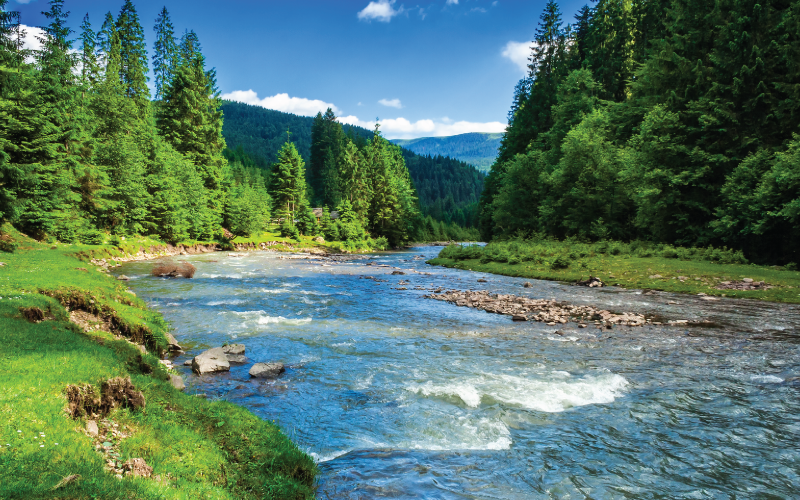New White Paper Highlights Air and Water Quality Conservation Efforts

BETHESDA, Md., July 17, 2024 /3BL/ - WHC (Wildlife Habitat Council) offers a new white paper available for download today, Protecting Earth’s Most Valuable Resources | Conservation Activities to Benefit Water and Air Quality. The white paper is sponsored by General Motors and is available for free on our website.
Water and air are the earth’s most valuable resources. No ecosystem or human community could exist without access to clean air and water, making the protection of these resources a paramount concern. Unfortunately, decades of industry and development have had negative effects on the quality of the earth’s air and water.
Because of the widespread and well-documented impacts of air and water pollution, governments have implemented regulations requiring industries to minimize deleterious effects on air and water. Adherence to these critical regulations is not the final step in corporate efforts to protect air and water quality. The private sector can go above and beyond these regulations to promote air and water quality through voluntary habitat conservation projects, with the added benefits of supporting wildlife species and human well-being.
The case studies featured in this white paper illustrate the role of habitat-specific projects in water and air quality improvement. Featured case studies from WHC-Certified sites include:
- ArcelorMittal: AM/NS Calvert, Alabama, USA
- Bacardi: Bombay Sapphire Distillery, Hampshire, UK
- Cemex: Laguna de Los Cangrejos, Santo Domingo, Dominican Republic
- DTE Energy: Downtown Detroit Headquarters, Michigan, USA
- The Earth Lab: Ejido Sisal, Yucatán, Mexico
- Freeport-McMoRan: Miami Site, Arizona, USA
- INVISTA: Victoria Site, Texas, USA
- ITC Holdings: Iowa City Warehouse, Iowa, USA
- WM: Twin Creeks Landfill, Ontario, Canada
Sponsored by General Motors, this white paper features a foreword stating, “Environmental conservation requires everyone’s participation. At GM, we believe that businesses have a responsibility to contribute to the regeneration of nature and the protection of biodiversity. As we strive to enhance resource circularity in our products and operations, we are also promoting biodiversity across our sites.”
About WHC:
WHC (Wildlife Habitat Council) has been working at the nexus of business and biodiversity for 35 years and is the only international NGO focused exclusively on enabling private sector action for nature. WHC builds strategies and frameworks for companies to integrate nature with climate, equity and engagement to support sustainable ecosystems and healthy communities. WHC’s corporate members represent some of the leading national and multinational corporations. WHC-certified programs can be found in 19 countries and 48 U.S. states. Learn more at www.wildlifehc.org.

